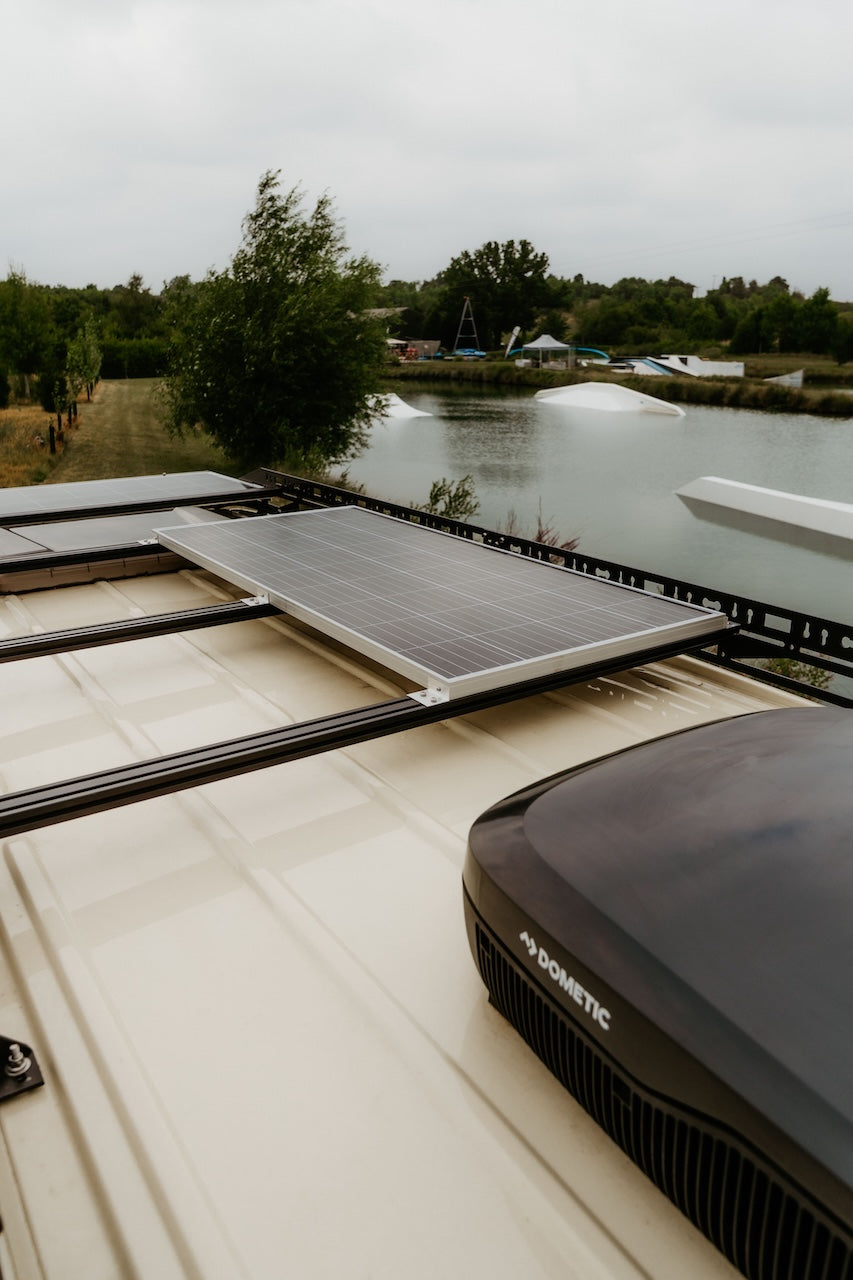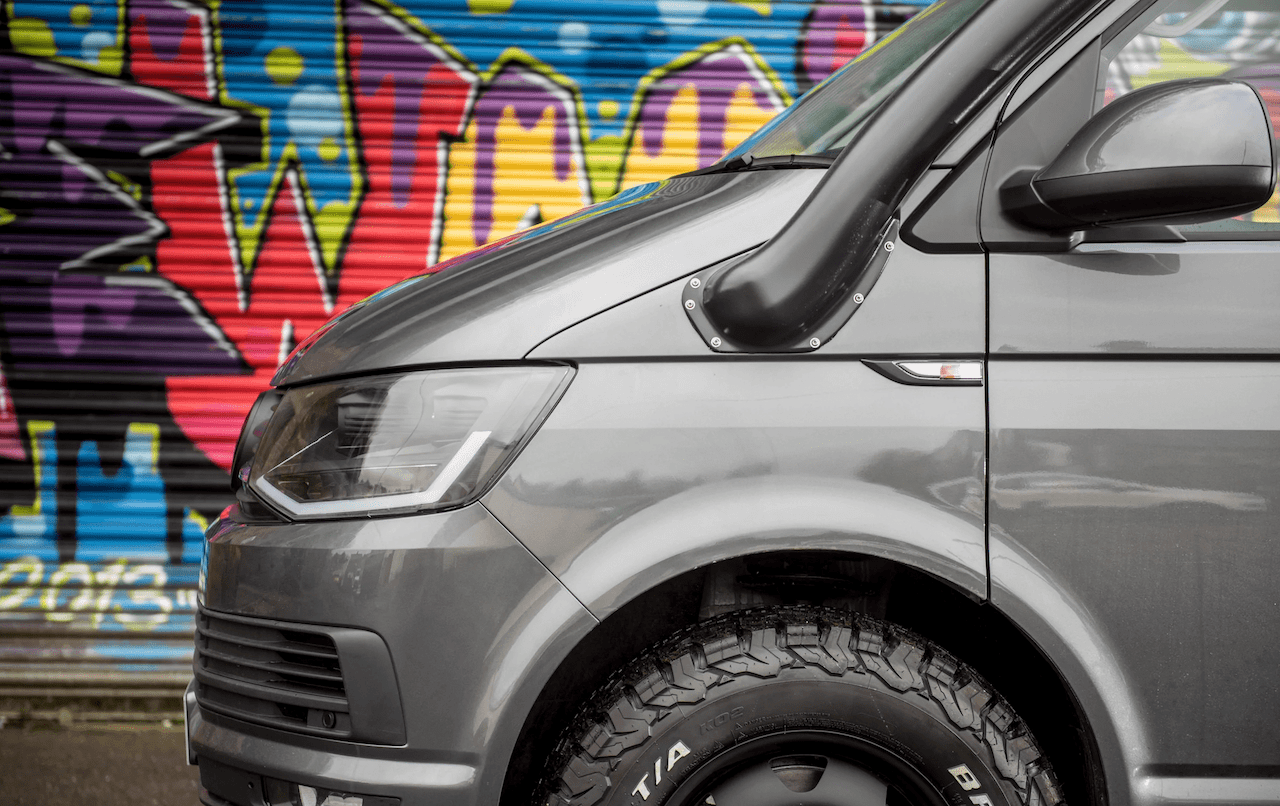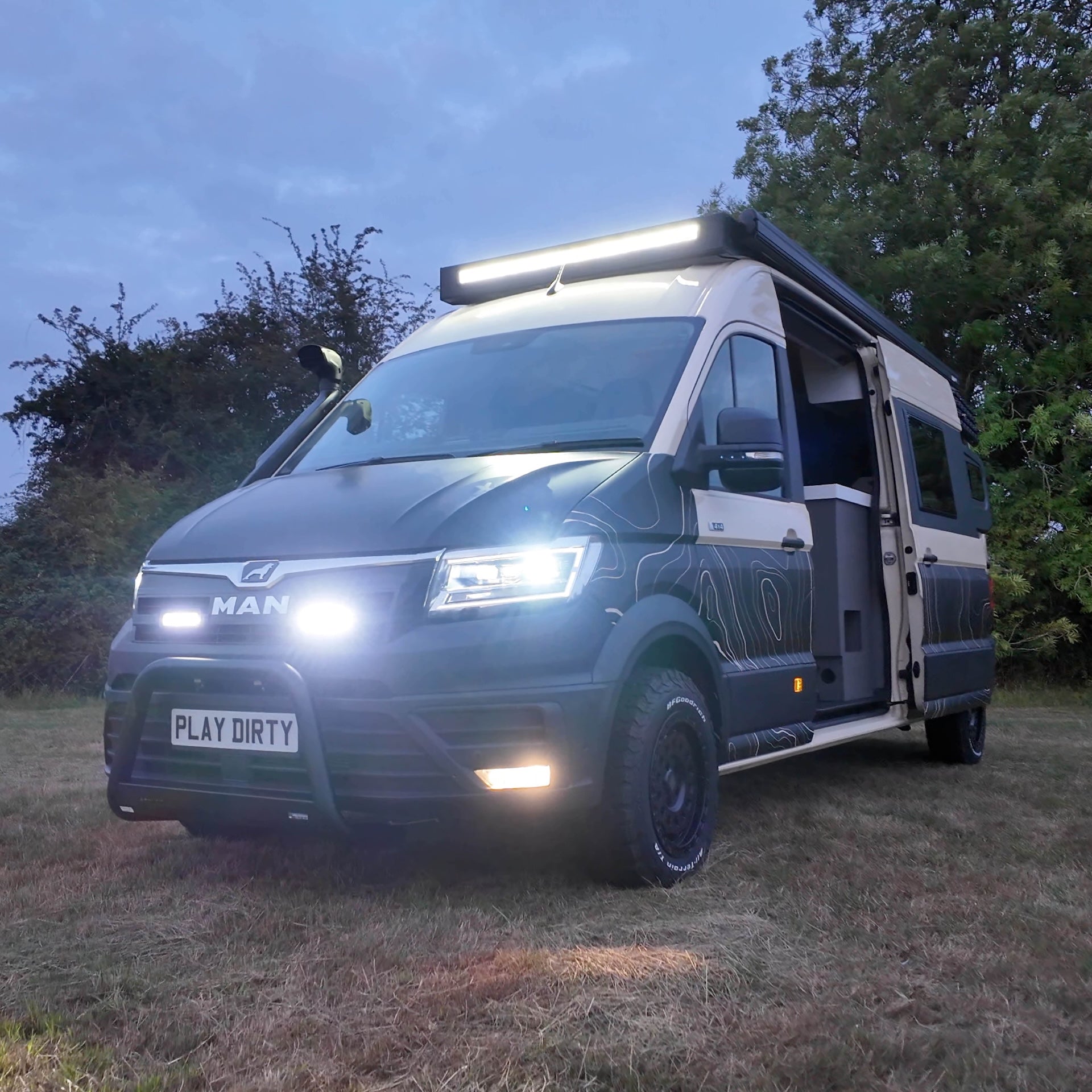If you’ve ever looked at a campervans electrical diagram and felt your brain melt a little, don’t worry, you’re not alone!
By the end, you’ll have a clear picture of what makes your campervans electrical system tick, how it all connects; from batteries, electrical set ups to solar panels. This will give you a basic understanding and an idea of what to think about when planning your own setup.
Once you understand the basics, it all starts to make sense. So in this post, we’re breaking it down in plain English, no jargon, no complicated maths just the stuff you actually need to know before diving in.
Electrics are one of the scariest parts of a van build for most people, and honestly, it’s easy to see why. Wires, fuses, volts, amps… it sounds like a foreign language.
12V vs 240V.. What’s the Deal?
Most campervans run two types of power: 12V and 240V.
-
12V - is what runs off your van’s batteries. Think lights, USB sockets, fans, fridges all the essentials that keep your off-grid life ticking along.
-
240V - is your standard household electricity. It’s what powers bigger appliances like induction hobs, laptops, or kettles. But only if you’re plugged into a hookup or using an inverter.
You’ll usually have two batteries in your setup:
-
A starter battery (for the cab: headlights, radio, engine, etc.)
-
A leisure battery (for your living space: lights, fridge, chargers, etc.)
It’s super important to keep those separate. If you drain your starter battery while parked up, you might find yourself stranded in the morning. No one wants that!
Keeping Your Batteries Charged
There are three main ways to keep your leisure battery topped up:
-
Solar panels, the ultimate off-grid power source.
-
Battery-to-battery, (DC-DC) charging uses your van’s alternator while driving.
-
Mains hookup, (shore power) perfect for campsites or when parked at home.
A balanced setup usually uses a mix of all three, so you’re never left powerless whether you’re wild camping in the Highlands or plugged in at a campsite in Cornwall.

Inverters, Turning 12V into 240V Magic
An inverter is what lets you use your normal 3-pin plugs even when you’re off-grid. It converts 12V DC power from your batteries into 240V AC, the same as at home.
They come in different sizes and power ratings. A small inverter might just charge a laptop, while a larger one can run a full induction hob. Just remember, inverters use a lot of power, so make sure your battery bank can handle the load!
How to Plan Your Electrical Setup
Before you start buying gear, take a moment to think about how you’ll actually use your van.
Ask yourself:
-
Will you mostly be off-grid or on campsites with hook-up?
-
What time of year will you travel, sunny summers or chilly winters?
-
Which gadgets and appliances do you really need?
If you’re mainly staying off-grid, invest in solar panels and bigger batteries. If you’re on hook-ups most of the time, you can keep things simpler. A little planning at this stage will save you a lot of money and headaches later on.

Choosing the Right Battery Type
There are two main options for campervan batteries: lead-acid and lithium.
-
Lead-acid: Cheaper, but heavier and less efficient. Good for small setups or tight budgets.
-
Lithium (LiFePO₄): Lighter, longer-lasting, and can discharge deeper, meaning more usable power. Great if you’re going off-grid a lot or running high-powered gear.
Lithium batteries often include built-in Bluetooth monitoring, so you can check your battery health and charge straight from your phone. Handy, right?
Solar Power.. Is It Worth It?
In short.. Yes, if you love being off-grid.
Solar panels aren’t fast chargers, but they’re brilliant for keeping your batteries topped up and healthy, especially if your van sits parked for long stretches.
For most vans, somewhere between 150–300W of solar is ideal. You can go for traditional framed panels or flexible roof panels for a sleeker look.
Wiring & Safety: Don’t Skip This Bit
Here’s where it gets serious: wiring mistakes can be costly (and dangerous).
The biggest culprits of electrical fires in vans are wrong wire sizes or missing fuses.
Every single circuit in your system should have a correctly rated fuse. That way, if something goes wrong, the fuse blows! Not your fridge, lights, or van.
Use protective conduit to keep wires safe from sharp metal edges, label your cables, and take your time. Electrics are one part of a build where slow and steady always wins.

Crimping vs Soldering.. Which Is Better?
When connecting wires, you can either crimp or solder.
Crimping is quicker, but only as good as your tool and technique, a weak crimp can come loose.
Soldering takes a little longer but gives a strong, permanent bond that won’t wiggle free on bumpy roads. If you’re doing it yourself, soldering is usually worth the extra effort.
Drawing It All Out
Before you install anything, draw your system diagram.
It doesn’t need to be artistic, just clear enough to show what connects where: batteries, fuses, appliances, isolators, etc.
This will help you see the bigger picture, spot potential issues, and make troubleshooting way easier later on.
A Few Safety Reminders
Let’s be honest, campervan electrics aren’t something you want to guess at.
Here are a few golden rules:
-
Always disconnect your power before working on the system.
-
Check wire thickness and fuse ratings, don’t just guess.
-
Use proper fixings, not tape or makeshift connections.
-
Don’t splice into factory wiring unless you know what you’re doing.
-
If in doubt, get a professional to check your setup before you hit the road.
The Finished System
Once everything’s in and working, you’ll be able to monitor your setup through your control panels — or even on your phone if you’re using smart systems like Victron or CBE. You’ll see:
-
Battery charge levels
-
Solar input
-
Power usage
-
Water tank levels
-
Lighting and heating controls
Pretty cool seeing your whole van’s electrical system in one place!
Final Thoughts
Electrics might feel overwhelming at first, but once you understand the basics, it’s just a matter of planning and patience. Whether you’re building your van from scratch or just want to know how everything works, a little knowledge goes a long way.





Leave a comment
This site is protected by hCaptcha and the hCaptcha Privacy Policy and Terms of Service apply.